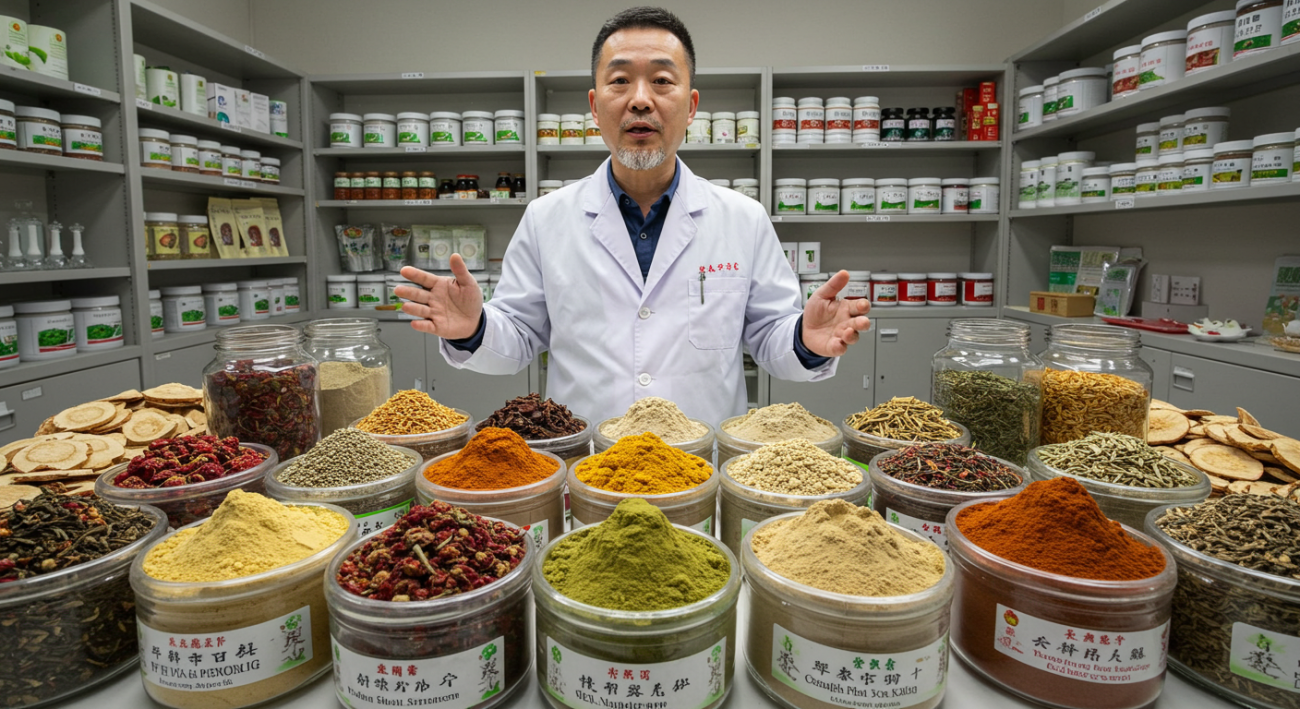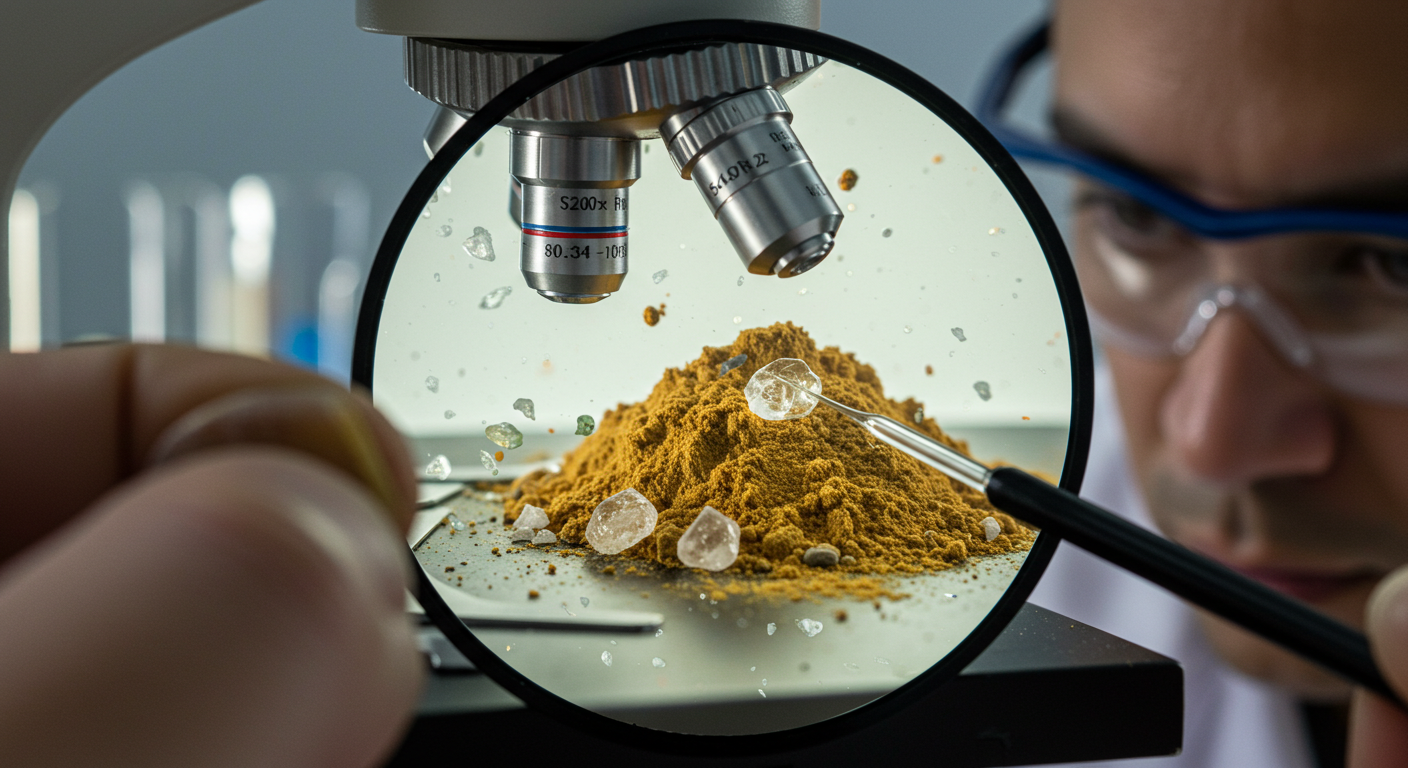Introduction
How can I reduce the risk of counterfeit or adulterated plant extracts? This is an important concern for any supplier of herbal ingredients today. The unchecked rise in the popularity of supplements, cosmetics, and wellness products poses a greater risk of low-quality, adulterated, or counterfeit extracts, especially from unverified vendors.
- The safety and integrity of herbal products is a serious issue fathoms beyond their business implications. Moreover, the public health impact of such practices can be monumental and raises ethical questions. Considerable brand damage and erosion of customer loyalty due to injury caused by a single impure batch add to legal implications.
- Identifying trusted suppliers, using third-party laboratory testing, demanding Certificates of Analysis (CoAs), and ensuring global compliance throughout the supply chain are risk mitigation strategies that this article outlines.
What are Counterfeit or Adulterated Plant Extracts?
Counterfeit or adulterated plant extracts are herbal materials that are misrepresented, spurious, contaminated, or modified to facilitate easier and cheaper manufacturing processes. The following outlines the methods through which adulteration may occur:
- Using cheaper raw materials like starch, talc, or synthetic fillers.
- Substituting look-alike medicinal herbs with their counterfeits by misidentifying plant species.
- Altering bulk weight and volume by dilution of active compounds.
- Negligent processing practices that add pesticides, heavy metals, and solvents.
All these principles, while being unethical, are more concerning for the profound risk they present.
This is Important for You to Know
- Diminishes the intended therapeutic benefit of the product.
- Increases potential toxicity, allergy, and drug interaction risks.
- Brand-associated legal consequences, FDA warning, and certification sabotage alongside product recalls.
- Long-term loss of consumer trust and loyalty.
Every herbal distributor, skincare brand, and supplement manufacturers need to be aware of the risks to foster compliance and uphold business integrity. At B-Thriving, we only work with Chinese suppliers who have GMP and ISO certifications. We verify the authenticity, purity, and origins of the botanicals, guaranteeing compliance at all steps.
How Can I Reduce the Risk of Counterfeit or Adulterated Plant Extracts?
How can I reduce the risk of counterfeit or adulterated plant extracts? Risks related to counterfeit and adulterated plant extracts can be minimized by adopting educated and proactive measures. This holds for brands, formulators, or distributors; the integrity of the entire supply chain must be ensured. Here’s how to minimize risk:
1. Work with Verified Suppliers
Limit suppliers to those who have a valid GMP and ISO certification and documented history. Require CoAs, species confirmation, and transparent documented sourcing.
2. Conduct Third-Party Lab Testing
Always screen for adulteration using HPLC, DNA barcoding, TLC, and ICP-MS. These approaches effectively screen for contamination, incorrect species, or toxic elements, including heavy metals.
3. Audit Your Supply Chain
Implement supplier selection criteria and routine audits. Protect against erratic pricing, poor documentation, lack of clear documentation sourced from transparent supply chains.

4. Secure Regulatory Compliance
Remaining current with the FDA, USP, and EMA is essential.
As a compliance obligation, you must ensure adequate documentation, such as Certificates of Analysis (CoA) and tracking for herbal extracts. B-Thriving gives you peace of mind in knowing that your herbal extracts are sourced from reputable Chinese manufacturers and are lab-tested for authenticity. We help you mitigate risks so that your products are safe, effective, and compliant.
Always ask your suppliers for a specific batch CoA to minimize risks associated with herbal extract procurement. This certificate ensures:
- Lacks overlap with other certificates of the same type.
- Claims of purity and concentration are accurate and validated.
- Extraction method utilized.
- The batch number is alongside the production date.
- Claims of freedom from pesticides and microorganisms.
Instead of buying from random, ask these questions of your potential suppliers:
- A recognized, accredited provider of Good Manufacturing Practice (GMP) services.
- ISO 22000 on the promulgation of food safety practices.
- ISO 17025 on laboratory tests and related activities.
These marks show an organization’s adherence to recognized standards of cleanliness and order.
Scheduled audits significantly decrease the possibility of fraud and malpractice occurring on the supplier side. Use a pre-audit checklist to strengthen your internal controls.
Supplier Audit Checklist:
- Is the supplier GMP or ISO certified?
- Do they issue third-party CoAs?
- Is there evidence of batch traceability?
- Are their extraction facility audits conducted annually?
- Do all their ingredients have traceability to the point of origin?
What Not to Do When Purchasing Extracts?
Warnings Perspective: Herbal Extracts:
Addressing these concerns of the herbal extract world could significantly enhance safety:
- Don’t buy into low pricing strategies—they often lead to poor quality and contamination.
- Avoid “pure extract” or “plant powder” terms as they lack descriptive specificity.
- Avoid suppliers who do not permit third-party testing or conceal their testing partners.
- Purchasing in bulk is not allowed. Validate samples first, then order a pilot batch.
Lack of transparency is a critical warning indicator. For your safety and to protect your brand, complete documentation and verified batch traceability from suppliers are needed.
What Sets B-Thriving Apart?
B-Thriving addresses the complex challenges of sourcing international herbal ingredients by providing dependable partnerships for plant extract procurement from China.
- Certified Suppliers
We actively work with partners who are certified with ISO 22000, ISO 17025, GMP, and other globally recognized standards.
- Independent Laboratory Verification
No batch is validated without independent laboratory testing for pesticides, heavy metals, microorganisms, and active compounds. Testing for each batch is done rigorously and without exception.
- Detailed Documentation
Our clients receive complete Certificates of Analysis (CoAs), Material Safety Data Sheets (MSDS), and compliance documents, which alleviate them from the burdens of importing.
- Full Supply Chain Transparency
We provide a plant-to-extract facility with shipping traceability, complete transparency, and documentation for each shipment.
- Customized Brand Services Provided
Our brand clients, be they start-ups or more established players in the market, receive tailored, holistic, proprietary development with personal audits, consultation, bespoke product safety goal assistance, and customized proprietary development support.
Conclusion
How can I reduce the risk of counterfeit or adulterated plant extracts? Managing the risks posed by counterfeit or adulterated plant extracts is critical from a safety perspective and for civilizational sustainability. Different brands have higher visibility because of their quality control measures, laboratory analysis, and their traceable and vetted supply chains. For more information, visit B-Thriving.

